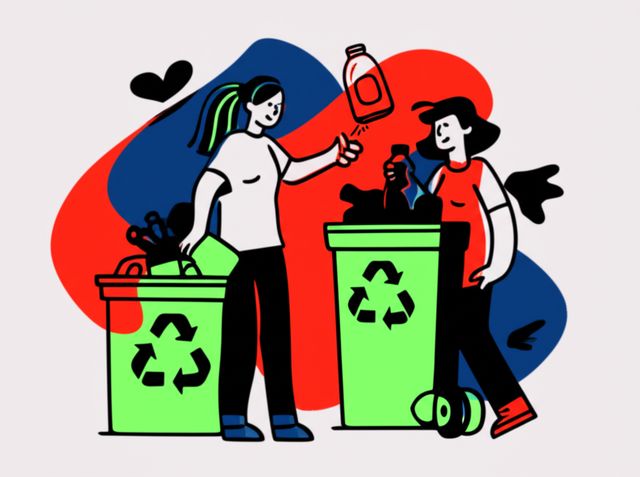Waste Reduction
Waste reduction is the process of minimizing or eliminating unnecessary waste and maximizing resource efficiency. It involves identifying and reducing the amount of waste generated in various sectors, including manufacturing, business operations, and personal consumption. Waste can take different forms, such as excess materials, energy consumption, and emissions.
Why Learn About Waste Reduction?
Learning about waste reduction offers numerous benefits, both personal and professional. Understanding waste reduction principles can empower individuals to make more sustainable choices in their daily lives and contribute to a cleaner and healthier environment. For professionals, waste reduction knowledge can lead to improved resource management, cost savings, and increased competitiveness.
Benefits of Learning Waste Reduction
There are several tangible benefits to learning about waste reduction and its associated skills and knowledge. Some of these benefits include:
- Cost savings: Reducing waste can lead to significant cost savings for businesses and organizations. By optimizing processes, eliminating unnecessary steps, and using resources efficiently, waste reduction can reduce operating expenses and improve profitability.
- Environmental protection: Waste reduction helps protect the environment by reducing pollution, conserving natural resources, and minimizing the negative impact of human activities on ecosystems.
- Resource efficiency: Learning about waste reduction can enhance resource efficiency by teaching individuals and organizations how to make better use of existing resources and minimize waste.
- Improved competitiveness: Businesses and organizations that prioritize waste reduction can gain a competitive advantage by demonstrating their commitment to sustainability and resource conservation. This can appeal to environmentally conscious consumers and investors.
- Career advancement: Waste reduction knowledge and skills are increasingly valuable in various industries, making it a sought-after skill for professionals looking to advance their careers.
Projects for Learning Waste Reduction
Individuals studying waste reduction can pursue various projects to further their learning and gain practical experience. These projects may involve:
- Waste audits: Conducting waste audits to identify sources and types of waste generated in a particular process, organization, or household.
- Waste reduction initiatives: Developing and implementing waste reduction initiatives to reduce waste generation and improve resource efficiency.
- Case studies: Analyzing case studies of successful waste reduction programs to learn best practices and identify potential areas for improvement.
- Research projects: Conducting research on waste reduction methodologies, technologies, and policies to stay updated on the latest advancements in the field.
- Educational campaigns: Creating and delivering educational campaigns to raise awareness about waste reduction and promote sustainable practices among individuals or organizations.
Online Courses for Learning Waste Reduction
Online courses can be an effective tool for learning about waste reduction. They provide flexible and accessible learning opportunities for individuals seeking to gain knowledge and skills in this area. Online courses typically offer:
- Lecture videos: Online courses often provide video lectures delivered by subject matter experts, covering the fundamentals of waste reduction and its associated principles.
- Projects and assignments: Learners can engage in practical projects and assignments to apply their knowledge and develop waste reduction strategies.
- Quizzes and exams: Quizzes and exams assess learners' understanding of the course material and provide feedback on their progress.
- Discussions: Online discussions facilitate interactions between learners, allowing them to share ideas, ask questions, and engage in peer-to-peer learning.
- Interactive labs: Some online courses may offer interactive labs or simulations that allow learners to experiment with waste reduction techniques and explore real-world scenarios.
Conclusion
Waste reduction is a critical topic that individuals and organizations can learn to minimize waste, optimize resource use, and protect the environment. Online courses offer a convenient and effective way to gain knowledge and skills in waste reduction. However, it's important to complement online learning with practical experience and continuous professional development to fully grasp the complexity of waste reduction and its applications.


